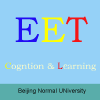-
Active learning
普通类 -
- 支持
- 批判
- 提问
- 解释
- 补充
- 删除
-
-
Active learning
ACTIVE LEARNING TECHNIQUES have been documented as far back as 490 BC when Socrates used problems and questions to guide students to analyze and think about their environments (Coltrane, 1993). These techniques have been found to help students acquire knowledge, develop critical thinking skills, solve problems in a variety of situations and to think independently. Although more research is needed to encourage large-scale implementation, many of the individual strategies developed may be used to help provide a more active learning environment for students in both training and educational environments.-
Resistance Ahead!
Of course, attempts to try something "new" may cause resistance from various groups within the training or education system. "Calls for change of any kind are seen as impositions or disturbances to be quelled as soon as possible, as unreasonable attempts to change the rules in the middle of the game" (Hodas, 1993). Starting small may be the best approach for managing this resistance to change.
Does the delivery of information via books and lecture to passive students in the classroom transfer to useful skills on the job?-
A Change in Our Assumptions
In addition to managing resistance from outside, it may be helpful to rethink some of our own assumptions about learners. Berryman (1991) holds that we often assume incorrectly that:
1.People easily transfer learning from one situation to another if they have learned the fundamental skills and concepts.
2.Learners are "receivers" of knowledge in verbal forms from books, experts and teachers.
3.Learning is entirely behaviorist, involving the strengthening of bonds between stimuli and correct responses.
4.Learners are blank slates ready to be written on and filled with knowledge.
5.Skills and knowledge are best acquired independent of realistic contexts for use.-
Quick Hitters
With a restructured look at our learners, we can now seek out opportunities for improvement. In his book "101 Ways To Make Training Active", Dr. Mel Silberman (1995) describes a number of strategies for creating more active learning environments. Although the focus is on training, many of the approaches can be effective in the educational environment as well. The book describes, among other things, classroom layout, facilitation tips, team building exercises, tips for getting buy-in to the course, and numerous other exercises which get students involved in the learning process.
Most of these strategies can be quickly implemented with little effort. One such example is "Lecture Bingo". "Lecture Bingo" is any easy way to take that first step to active student participation. Below is a summary of the key elements of the game:-
Lecture Bingo
In an effort to ensure students are actively listening to a lecture, a bingo card can be created with learning points written on each of the nine squares. Additional cards should be made with the same learning points, placed in different squares.
A sample "Lecture Bingo" card.
Students mark their card as the points are identified from the lecture and yell "Bingo!" when they when they get three vertical, horizontal or diagonal marks.-
Conclusion
Although "Lecture Bingo" will not achieve many of the results possible with some of the more complex active learning strategies available, it is just an example of taking the first step to creating a richer, more active learning environment for our students.-
author
Coltrane, L. (1993). An overview of problem-based learning in medical education. Class paper
Hodas, S. (1993). Technology refusal and the organizational culture of schools [electronic journal]: School of Education, Leadership and Policy Studies, University of Washington.
Berryman, S.E. (1991). Designing effective learning environments: cognitive apprenticeship models. ERIC Document 337 689, 1-5.
Bailey, D. (2004). Active learning. In B. Hoffman (Ed.), Encyclopedia of Educational Technology.--------------------------------------------------------------------------------
Dale Bailey, Graduate Student
SDSU Educational Technology -
-
- 标签:
- strategies
- 1993
- change
- active
- students
- bingo
- learning
- lecture
- training
- knowledge
-
加入的知识群:



学习元评论 (0条)
聪明如你,不妨在这 发表你的看法与心得 ~